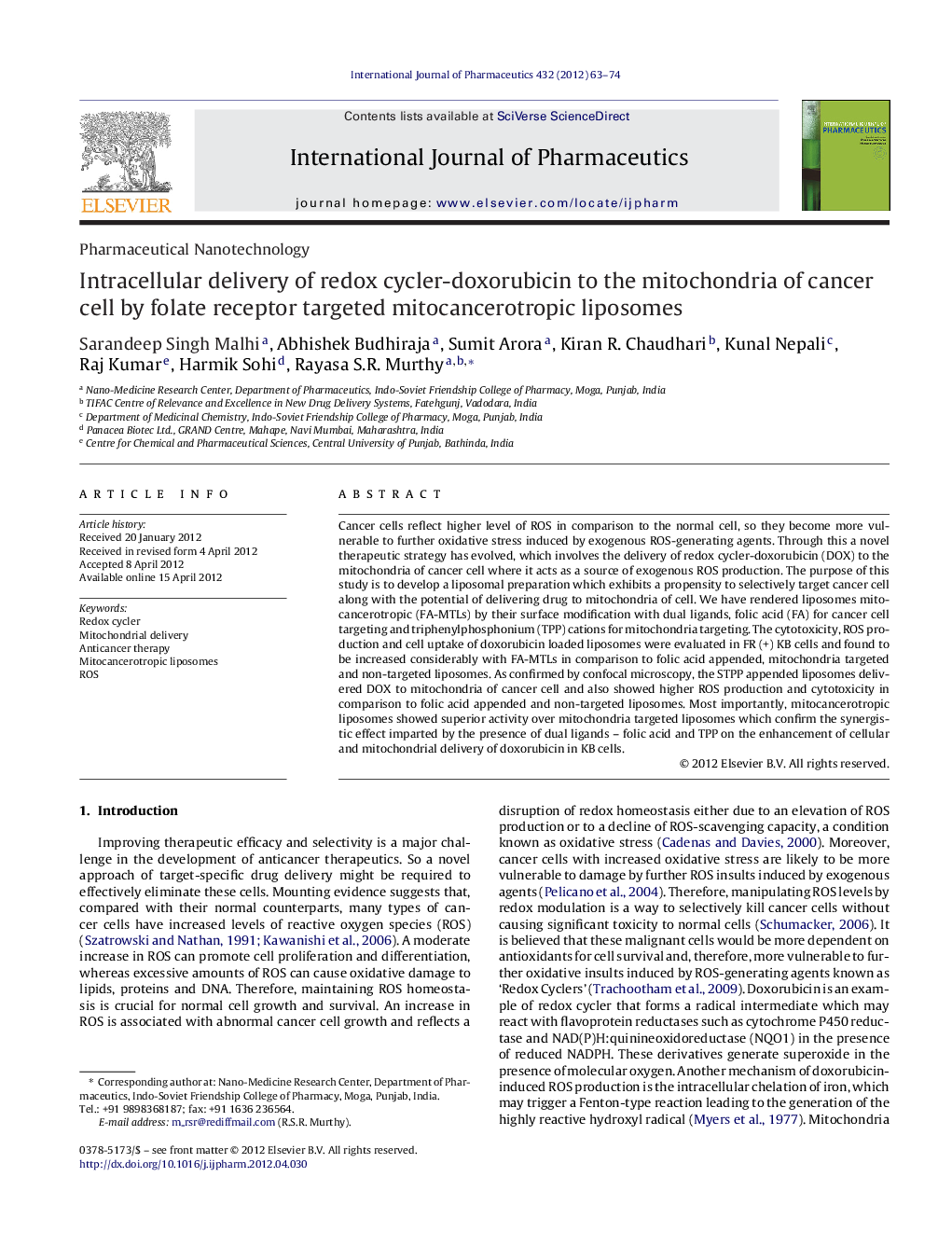| Article ID | Journal | Published Year | Pages | File Type |
|---|---|---|---|---|
| 2502884 | International Journal of Pharmaceutics | 2012 | 12 Pages |
Cancer cells reflect higher level of ROS in comparison to the normal cell, so they become more vulnerable to further oxidative stress induced by exogenous ROS-generating agents. Through this a novel therapeutic strategy has evolved, which involves the delivery of redox cycler-doxorubicin (DOX) to the mitochondria of cancer cell where it acts as a source of exogenous ROS production. The purpose of this study is to develop a liposomal preparation which exhibits a propensity to selectively target cancer cell along with the potential of delivering drug to mitochondria of cell. We have rendered liposomes mitocancerotropic (FA-MTLs) by their surface modification with dual ligands, folic acid (FA) for cancer cell targeting and triphenylphosphonium (TPP) cations for mitochondria targeting. The cytotoxicity, ROS production and cell uptake of doxorubicin loaded liposomes were evaluated in FR (+) KB cells and found to be increased considerably with FA-MTLs in comparison to folic acid appended, mitochondria targeted and non-targeted liposomes. As confirmed by confocal microscopy, the STPP appended liposomes delivered DOX to mitochondria of cancer cell and also showed higher ROS production and cytotoxicity in comparison to folic acid appended and non-targeted liposomes. Most importantly, mitocancerotropic liposomes showed superior activity over mitochondria targeted liposomes which confirm the synergistic effect imparted by the presence of dual ligands – folic acid and TPP on the enhancement of cellular and mitochondrial delivery of doxorubicin in KB cells.
Graphical abstractFigure optionsDownload full-size imageDownload high-quality image (254 K)Download as PowerPoint slide
